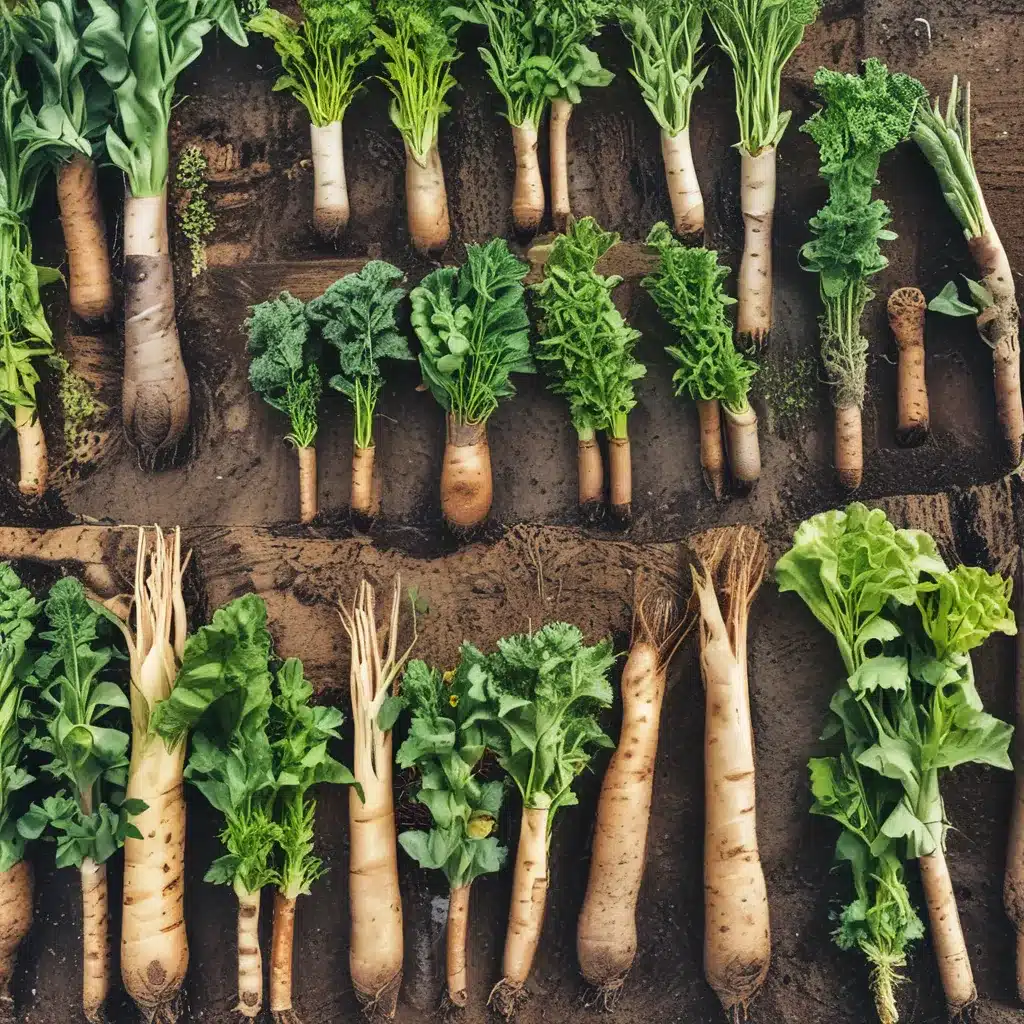
Cultivating a Greener Future, One Crop at a Time
As I stroll through the bustling Thornapple CSA farmers market, the air is thick with the earthy aroma of freshly harvested produce. Rows of vibrant vegetables, plump fruits, and artisanal goods beckon me to explore their bounty. It’s a scene that fills me with a sense of wonder and excitement, for this is more than just a place to shop – it’s a gateway to a sustainable agricultural revolution.
Community-Supported Agriculture (CSA) services like Thornapple are at the forefront of a movement that is transforming the way we think about food production. These innovative programs connect local consumers directly with small-scale farmers, fostering a symbiotic relationship that benefits both the land and the people who depend on it.
Empowering Smallholder Farmers
At the heart of this sustainable revolution are the unsung heroes of agriculture – the smallholder farmers. As I learned from Sustainable Agriculture, these resilient individuals, often working on modest plots of land, are quietly shaping a transformative narrative in the world of food production.
Smallholder farmers are the guardians of agroecological knowledge, employing farming practices that harmonize with nature. They draw on traditional wisdom and an intimate understanding of their local ecosystems to cultivate crops in a sustainable manner. From implementing crop rotation to utilizing natural pest management techniques, these farmers are masters of working in tandem with the land, rather than against it.
What sets smallholder farmers apart is their unwavering commitment to their communities. They prioritize local needs, fostering a symbiotic relationship between agriculture and the well-being of their neighborhoods. By choosing to source from these local producers, consumers directly contribute to the economic resilience of the smallholder community, creating a virtuous cycle of sustainability.
The Rise of Community-Supported Agriculture
The growth of CSA services has provided a powerful platform for these small-scale farmers to thrive. By connecting directly with consumers, CSAs bypass the traditional, often exploitative supply chains that have long dominated the agricultural industry.
As I learned from Food Farm CSA, the key to making sustainable farming practices more appealing to farmers lies in ensuring there’s an economic value to the transition. CSAs achieve this by offering reliable, consistent demand for the farmers’ crops, along with fair, guaranteed pricing. This not only provides a stable income stream for the producers but also encourages them to invest in long-term, sustainable farming methods.
Moreover, CSAs foster a sense of community and transparency that traditional agricultural models often lack. Consumers who join a CSA program become active stakeholders in the success of their local farmers, gaining a deeper understanding and appreciation for the hard work that goes into food production. This connection, in turn, inspires them to make more conscious, sustainable choices in their everyday lives.
Cultivating Change, One Crop at a Time
As I browse the vibrant stalls at the Thornapple CSA farmers market, I’m struck by the sheer diversity of the offerings. From heirloom tomatoes to heritage grains, the array of unique, locally-grown produce is a testament to the creativity and adaptability of the smallholder farmers who supply this community.
These farmers, as I learned from Heather Clancy’s article, are not just cultivating crops – they’re nurturing the very essence of the land. Their deep connection to their local ecosystems allows them to navigate challenges, whether climate-related or market-driven, with remarkable resilience.
By supporting CSA programs like Thornapple, consumers become active participants in this sustainable revolution. Their choices directly impact the livelihoods of smallholder farmers, encouraging them to continue their vital work of preserving the land and uplifting their communities.
Fostering a Greener, More Equitable Future
As I make my way home, my reusable canvas bags brimming with fresh, locally-sourced produce, I can’t help but feel a sense of optimism for the future of agriculture. The rise of CSAs and the empowerment of smallholder farmers are not just environmental victories – they’re a testament to the power of community, resilience, and a deep, abiding respect for the land.
By investing in CSA programs and championing the work of these unsung heroes of sustainable agriculture, we can collectively create a future where food production is not just a means to an end, but a celebration of the symbiotic bond between humanity and the natural world. It’s a future where every bite nourishes not just our bodies, but our soul, our community, and our planet.
So, let us continue to root for change, one crop at a time, and watch as the seeds of sustainability bloom into a bountiful, equitable, and regenerative agricultural landscape.



